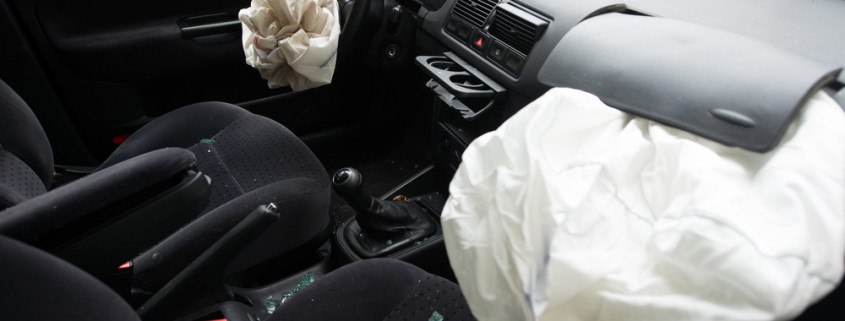Review Insurance Before a Car Accident
Local injury attorneys have seen an alarming increase in the number car accidents caused by drivers with very low auto insurance coverage. What this means for accident victims is that the driver who caused their accident probably won’t have enough insurance to compensate them for their injuries.
Unfortunately, a seriously or catastrophically injured person does not have much recourse against a driver who doesn’t have adequate insurance coverage.
Worse, it’s usually after they’ve been injured that crash victims find out their own auto policies don’t offer the “full coverage” they thought they had.
Recently a young mother and her daughter were driving through an intersection when a driver made a left turn and t-boned their vehicle. The mother suffered a severe leg fracture.
The driver who caused the car accident had a minimal policy of $15,000, which is all the mother was able to collect, even though her medical expenses exceeded $75,000.
Our office reviewed the mother’s auto insurance policy in the hopes she had underinsured motorist and medical payments coverage.
She did not have med pay, which would have helped with medical expenses and liens that were filed against her settlement, but she did have underinsured motorist coverage. She also had a minimal policy, so even though she had suffered a catastrophic injury, the most she was able to collect from her UIM claim was another $15,000.
Keep in mind that when purchasing auto insurance, you want to make sure you protect yourself and your loved ones in case of a car accident.
We recommend you add uninsured, underinsured and medical payments to your policy, and that you give serious consideration to the amounts of coverage you need for adequate protection.
Take the example of a single-income parent working as a hair stylist who suffers a shoulder injury in a motor vehicle accident. An absence of several months from work or an inability to ever return to her job could have dire financial consequences.
Such person will be well advised to carry at least $100,000 in UM and UIM coverage, and at least $5,000 in medical payments. The cost is relatively low compared to liability premiums.
Uninsured motorist coverage will protect you if the person who injures you does not have any auto insurance; underinsured motorist coverage kicks in if the person who causes the accident does not have enough insurance to cover your injuries; medical payments reimburses you for accident-related medical expenses. It’s a good idea to add med pay to your auto policy even if you have medical insurance.
The words “full coverage” as they relate to auto insurance are meaningless unless you review your policy’s Declarations Page and determine what it covers if you’re the victim of a car crash.
Take a few minutes to review our previous blog posts to learn more about Auto Insurance Terms, and why you should carry Uninsured, Underinsured and Medical Payments coverage.
A few more considerations about UM, UIM and Med Pay: using this coverage will not increase your insurance premiums, and it is transferable to any relative related by blood or marriage who is living in the same household as the policy holder.
Making sure you’re adequately covered by auto insurance in case you’re the victim of a car accident is smart planning.





